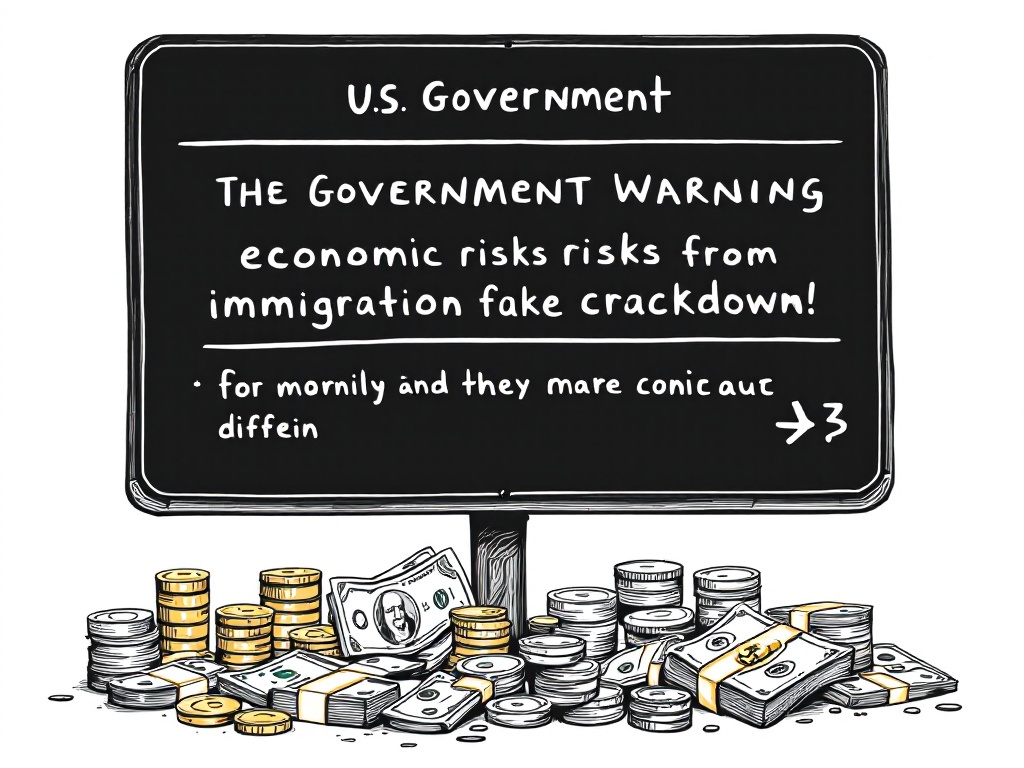CBO Warns of Economic Risks from Immigration Crackdown

Washington, D.C., Friday, 12 September 2025.
CBO warns that recent U.S. immigration policies may lead to labor shortages, hindering GDP growth and increasing inflationary pressures.
Impact on GDP and Inflation
The Congressional Budget Office (CBO) has released a report warning that recent immigration policies under former President Trump could lead to significant economic repercussions. These policies are expected to cause a faster-than-anticipated decline in the U.S. population growth due to deportations and reduced legal immigration, which could result in a labor shortage. This shortage is projected to hinder GDP growth, potentially shrinking it by 0.3% to 0.4%, translating to an annual economic output loss of between $70.5 billion and $94 billion [1][2]. Furthermore, the reduced labor supply may increase inflationary pressures, with predictions indicating inflation could rise from 2.5% to around 4% by early next year if current deportation rates continue [1].
Demographic Shifts and Economic Consequences
The CBO’s revised demographic outlook suggests that death will surpass births in the U.S. by 2031, two years earlier than previously projected. This shift is attributed to a diminished immigrant population and lower fertility rates, exacerbated by policies including the 2025 reconciliation act, which allocated $170 billion for immigration enforcement [1][2]. As a result, the working-age population is expected to shrink faster than earlier estimates, potentially reducing economic activity and labor productivity. This demographic trend is likely to place upward pressure on wages and prices, especially in sectors heavily reliant on immigrant labor such as agriculture and technology [1][3].
Policy Implications and Future Strategies
Analysts stress that immigration policy is a crucial determinant of the U.S. economic outlook. The current administration’s focus on stricter border security appears to come with significant economic trade-offs, particularly concerning long-term growth. The CBO emphasizes the importance of integrating immigrants into the workforce to maximize economic benefits, as a well-managed immigration policy can contribute to GDP growth and stabilize prices [1][4]. As policymakers navigate these challenges, the need for comprehensive immigration reform becomes increasingly pertinent to sustain economic stability and growth [5].